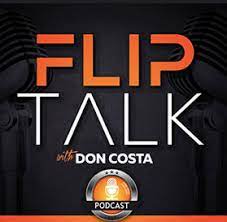Considerations When Selling on an Installment Contract
By Mr. Land Trust, RANDY HUGHES
One of the many ways to make money in the real estate business is to buy low and sell higher on an installment contract.
The traditional method of contract selling is known as “Contract for Deed.” It is a risky way of selling property when the buyer does not have cash or conventional financing. The risk involves the buyer defaulting on the contract.
Where’s the Risk?

By law, even though they have defaulted, the buyer still has an “equitable interest” in YOUR property. That interest must be foreclosed upon.
Foreclosure is a time-consuming and expensive legal process that can take months to accomplish while the contract seller makes payments on her underlying loan with no income to offset her payments. This is the WORST part of real estate investing.
One of the many benefits of using a Land Trust to hold title to investment real estate is the ability to sell the Beneficial Interest (which is personal property and not real property in most states) on an installment contract with the capability to “repossess” the Beneficial Interest when default occurs instead of having to “foreclose” the interest. Repossession takes about 30 days, foreclosure can up to a year.
article continues after advertisement

A Guiding Example
Regardless of which method you use to “sell on a contract,” selling the real property or the Beneficial Interest, you should check your State’s law regarding Contract Sales. For example, in Illinois, there is the Installment Sales Contract Act. It represents an excellent example of why I am always recommending that you seek competent legal counsel. There are certain disclosures required under the Illinois Installment Sales Contract Act.
The Act states that it means a “. . . legal device whereby a seller agrees to sell and the buyer agrees to buy a residential real estate.” Wait!, you say. Didn’t you just write that the Beneficial Interest is personal property? You are correct. I did. It is in most states and that is why I like to set my trusts up in states that consider the Beneficial Interest of a Land Trust personal property. And as documented in the DePaul University Law Review, volume 18, issue 2, article 37, page 878, it is.
Since the Beneficial Interest is not real estate, does the Act apply? The attorney in Illinois with whom I consulted encouraged me to comply with the Act anyway in case a judge rules that the Act does apply. When you go in front of a judge, anything can happen . . . no matter what the law in your State says. Judges “make law” every day in their courtrooms and if you don’t like it, you can appeal.
This Could Be a Good Thing

Even if you view the attorney I consulted as being overly cautious, you might consider fulfilling the requirements under that law. They could make your contract even more defensible if it should be challenged.
Here are highlights of those requirements:
- The contract must be in writing;
- The Seller must give the Buyer a copy of the contract at least 3-days before closing.
- The contract must contain many disclosures, including, but not limited to the following:
- Purchase price
- Down payment
- Interest rate
- Payment due date
- Balloon payment due date (if any)
- Amortization Schedule
- Statement of who is responsible for repairs.
- Who pays real estate tax bills
- Who pays for property insurance
- A list of building code violations
- Amount of any unpaid real estate property taxes
- If there are any liens against the property
- If the property has been condemned
- The Seller must record the contract or a memorandum of the contract at the Recorder of Deeds Office in the county where the property is located
- The Seller must provide the Buyer with an account statement upon request
- No pre-payment penalties can be charged for payments not due yet
- If you default, you have the right to pay all fees and charges currently due under the contract to cure the default in 90 days.
article continues after advertisement

I encourage you to learn more by going to my FREE online training at www.landtrustwebinar.com/411 and text the word “reasons” to 206-203-2005 for my free booklet, Reasons to Use a Land Trust. You can also reach me the old-fashioned way by calling me at 217-355-1281. (I actually answer my own phone, unlike most other businesses in America today!)
Learn live and in real-time with Realty411. Be sure to register for our next virtual and in-person events. For all the details, please visit Realty411Expo.com or our Eventbrite landing page, CLICK HERE.























